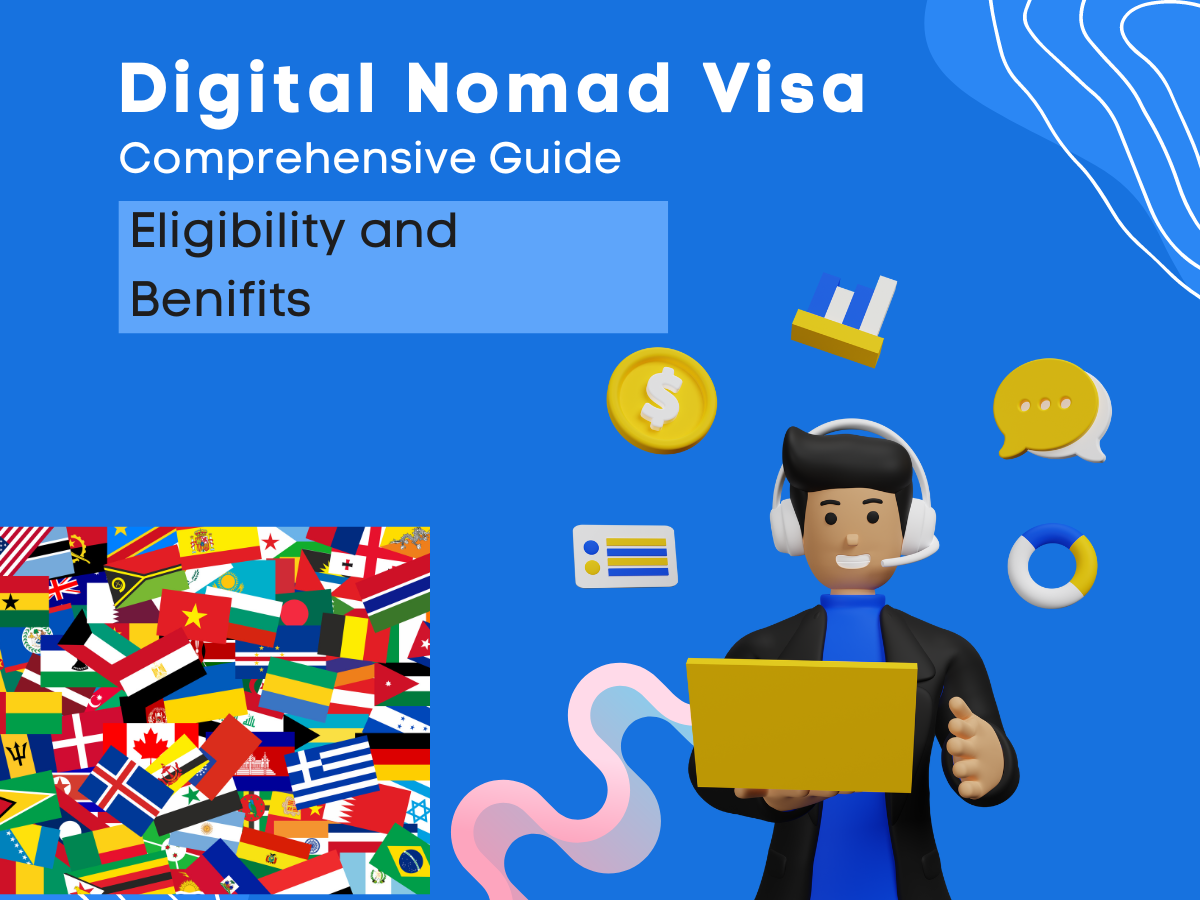The concept of the digital nomad lifestyle has gained huge traction in recent years, offering individuals the freedom to work remotely while exploring different corners of the world. The introduction of the Digital Nomad Visa, which offers people legitimate employment opportunities while traveling abroad, facilitates this lifestyle.This comprehensive guide explores digital nomad visas, including requirements, eligible countries, and benefits for aspiring remote workers.
What is a digital nomad visa?
A digital nomad visa is a short-term permit that some nations issue to people so they can live and work there for a set amount of time. Digital nomad visas specifically target remote workers, freelancers, and entrepreneurs who desire to conduct their work activities while traveling internationally, unlike traditional tourist visas. These visas provide individuals with legal permission to work remotely while enjoying the cultural experiences and amenities of a foreign country.
Requirements for getting a digital nomad visa
While the specific requirements for a digital nomad visa vary by country, applicants generally must meet several common criteria:
Age: Applicants must generally be over 18 years old.
Income: Most countries require proof of a regular monthly income, which may vary depending on the cost of living in the country.
Remote Work: Applicants must demonstrate that they have work or business that they can perform remotely, typically for an employer or client outside the host country, in the case of remote work.
Health Insurance: Many countries require proof of adequate health insurance for the duration of your stay.
Passport: Usually, a valid passport with a minimum validity period, typically six months beyond the planned stay, is required.
Documentation: Applicants may need to submit various documents, such as a completed visa application form, passport photos, proof of income, and evidence of remote work arrangements.
Countries Offering Digital Nomad Visa
As of 2024, numerous countries around the world have introduced digital nomad programmes to attract remote workers and stimulate their economies. Some of the countries that currently offer digital nomad visas or have announced plans to implement them include:
many more….
Eligibility and Benefits
In order to qualify for a digital nomad visa, candidates must satisfy the particular criteria established by the visa program of each respective country. Age restrictions, income requirements, and evidence of remote work proficiency may be among these. In exchange, digital nomads are granted a multitude of advantages, including:
Legal Authorization: By granting digital nomad visas, the potential for operating illegally on a tourist visa is eliminated. They grant the legal right to operate remotely in a foreign country.
Extended Stay: In contrast to conventional tourism visas, digital nomad visas generally provide for extended periods of residence, typically spanning from one to two years, with the potential for extension.
Tax Advantages: Certain nations provide tax exemptions or incentives to digital nomads, thereby mitigating their tax liability during their relocation and employment overseas.
Cultural Immersion: While pursuing their professional endeavours, digital nomad visas enable individuals to immerse themselves in the local culture, way of life, and community of the host country.
Networking Advantages: Digital nomads residing and operating in a foreign nation gain access to a broad spectrum of professional, entrepreneurial, and creative networks, fostering cooperation and innovation.
Conclusion
In conclusion, digital nomad visas offer a gateway to relocating to countries that provide a high quality of life, lower taxes, vibrant cultures, and safety for families. By embracing this opportunity, individuals can pursue their professional endeavors while enjoying the enriching experience of living abroad.
Other Immigration opportunities you can check here.



